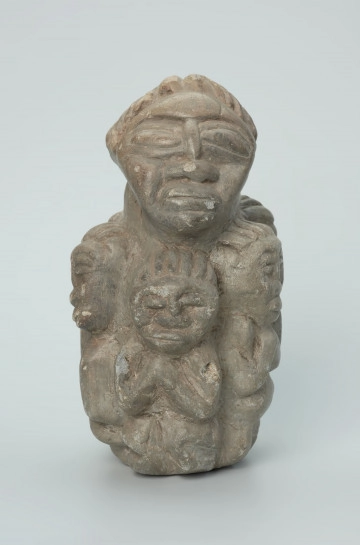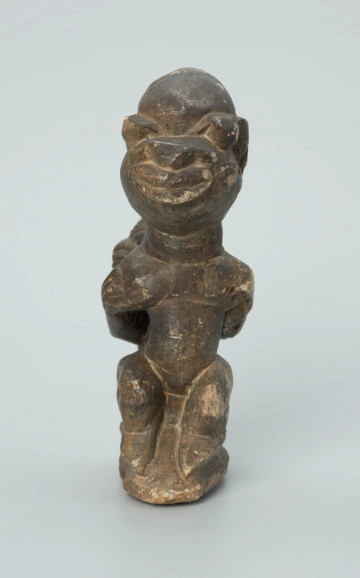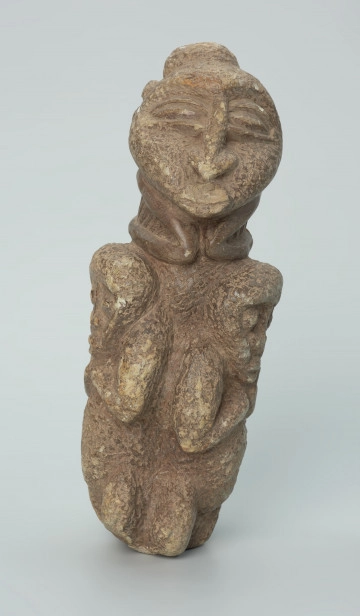
Figure of cult of dead
1901 — 1973
National Museum in Szczecin
Part of the collection: Stone figurines from West Africa
Carved in steatite, the pomdo (plural pomda or pomta) deceased cult figures represent a human figure, probably a woman surrounded by three smaller figures, probably children. The body of the female figure has been draped over the children, whose bodies face their mother and whose faces are turned outwards. Large oval-shaped eyes mark the figures' faces with a distinct eyelid line, prominent lips and broad and flat noses. There is a noticeable resemblance between the children and the mother-woman. Figures of pomda were usually found during agricultural works. Their appearance is interpreted as a good sign. The Kissi treat the excavated statues as returning ancestors. They place them on family cult altars. According to French Africanist and anthropologist Denise Paulme, 'disguised' pomda sculptures, meaning those wrapped in cloth or carried in cases, were used by fortune-tellers for divination. The relationship of the pomda carvings to similar nomolisia (singular nomoli) figurines from Sierra Leone is not entirely clear. In both cases, dating them and identifying the ethnic group whose representatives made them is difficult. Some researchers believe that they may date from the 16th century, as elements of clothing resembling the 16th-century Portuguese costumes have been spotted on them.
Katarzyna Findlik-Gawron
Author / creator
Dimensions
cały obiekt: height: 24,5 cm, width: 13 cm
Object type
figure
Creation time / dating
Creation / finding place
Identification number
Location / status

unknown
1901 — 1973
National Museum in Szczecin

unknown
1901 — 1971
National Museum in Szczecin

unknown
1901 — 1973
National Museum in Szczecin
DISCOVER this TOPIC
Museum of King Jan III's Palace at Wilanów
DISCOVER this PATH
Educational path
0/500

We use cookies to make it easier for you to use our website and for statistical purposes. You can manage cookies by changing the settings of your web browser. More information in the Privacy Policy.
We use cookies to make it easier for you to use our website and for statistical purposes. You can manage cookies by changing the settings of your web browser. More information in the Privacy Policy.
Manage cookies:
This type of cookies is necessary for the website to function. You can change your browser settings to block them, but then the website will not work properly.
WYMAGANE
They are used to measure user engagement and generate statistics about the website to better understand how it is used. If you block this type of cookies, we will not be able to collect information about the use of the website and we will not be able to monitor its performance.